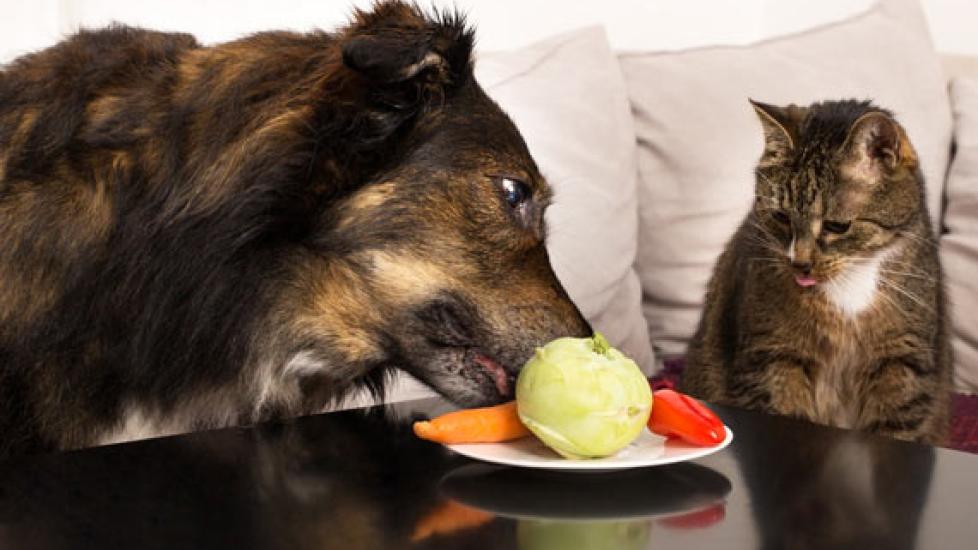More Evidence That Dogs Can Be Vegetarians… And Cats Can’t
We’ve talked before about whether or not dogs and cats can be vegetarians. My answer has always been “yes” for dogs as long as they eat a food that has been carefully designed to meet all of their nutritional needs, and “no” for cats, since they are true, obligate carnivores and need to eat amino acids that can only be found in animal-based sources of protein.
I recently came across some new research that reinforces the idea that vegetarian diets can be a reasonable option for dogs but not for cats. The study looked at the overall amount of protein present and the concentrations of specific amino acids (the building blocks that the body uses to build its own proteins) in 24 over-the-counter and veterinary therapeutic vegetarian/vegan diets for dogs and cats.
The scientists used accepted techniques to determine the foods’ crude protein levels and amino acid concentrations and compared these numbers to the minimum requirements put forth in the Association of American Feed Control Officials (AAFCO) Dog and Cat Food Nutrient Profiles for growth and adult maintenance. To paraphrase their most pertinent results, 23 of the 24 foods met or exceeded the AAFCO minimum for crude (total) protein, and 18 diets contained all amino acids in concentrations that met or exceeded the minimum AAFCO values. BUT:
- Five diets (all for cats; 3 dry and 2 canned) provided 1 or more amino acids at concentrations below the AAFCO minimum value. Of these 5 diets, 1 was below the AAFCO minimum requirements in 4 amino acids (leucine, methionine, methionine-cystine, and taurine), 1 was below in 3 amino acids (methionine, methionine-cystine, and taurine), 2 were below in 2 amino acids (lysine and tryptophan), and 1 was below in 1 amino acid (tryptophan). An additional canned diet intended for both dogs and cats exceeded the amino acid minimum values for dogs but was below the minimum values for cats for 3 amino acids (methionine, methionine-cystine, and taurine).
- All of the canned diets formulated for cats (2 for cats and 1 for both dogs and cats) were below the AAFCO minimum value for taurine.
- Overall, of the diets that contained 1 or more amino acids at concentrations below AAFCO minimum values, the amino acid concentrations ranged from 34% to 98% (median, 82%) of the minimum requirement stated in the AAFCO Dog and Cat Food Nutrient Profile.
In short, the dog foods had all the amino acids that this species needs, while six of the diets labeled for cats were deficient.
So if you are in the market for a vegetarian/vegan dog food, it looks like you can be fairly confident that what is available on the shelves will give dogs the specific amino acids they need to be healthy. Unfortunately, the same cannot be said for cats.

Dr. Jennifer Coates
Reference
Assessment of protein and amino acid concentrations and labeling adequacy of commercial vegetarian diets formulated for dogs and cats. Kanakubo K, Fascetti AJ, Larsen JA. J Am Vet Med Assoc. 2015 Aug 15;247(4):385-92.
Image: Tibanna79 / Shutterstock
